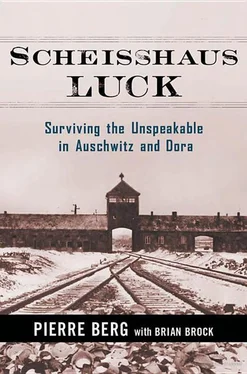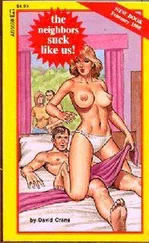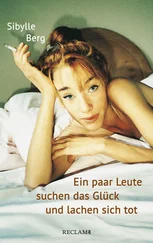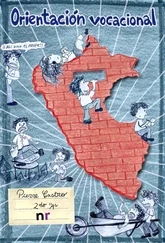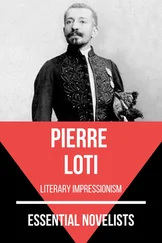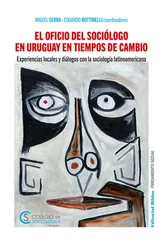Now that we were in the second stage of lycee (high school) we didn’t see each other as often, since I had opted for philosophy as my major and Claude had chosen mathematics.
“Can you hide me?” he asked.
“Sure. Why?” I asked, disconcerted by his appearance.
“Two Vichy goons came to our house to arrest me.”
Two months earlier, September 8, 1943, to be exact, the Nazis occupied southern France after the Italians had pulled out of the war. Emboldened by the influx of SS and Gestapo, the Fascist milice (militia) in our hometown of Nice became more active.
“Why did they want to arrest you?”
“They’re rounding up more bodies to finish the boches’ [derogatory slang for Germans] Atlantic wall. Hell, no. I jumped through my rear window right into a bush.”
I had heard that the traitors were snatching people at random.
Claude smiled when I glanced down our driveway.
“Don’t worry. I lost them for good.”
“Get washed and I’ll patch you up.”
Claude wasn’t sure why they had chosen him. It could have been because his parents were Italian, or because he was born in the French colony of Indochina. It could be they figured he had a strong back. Claude was a head taller than I was, and very athletic.
It was no problem letting him hide in our house. My parents were gone and wouldn’t be back for a month or more. Since I was ten, my parents had been in the habit of leaving me alone when my mother accompanied my father on his business trips to Paris, Geneva, or Berlin. There was always a maid, but since their concern was keeping the house tidy, and not my comings and goings, I was more or less left to my own devices.
Even though my parents were in the mountains above Monte Carlo, they weren’t on vacation this time. My father had leukemia, a cancer he had been battling for two years with radiation and arsenic treatments. He had been in remission for months, but it was back and my mother had escorted him to a clinic.
After Claude’s brothers and his girlfriend came to visit a few times, I began to worry that the foot traffic would attract the attention of my neighbors. You couldn’t trust anybody, with the Germans posting rewards for reporting anything suspicious or out of the ordinary. I took Claude into our backyard and pointed to the toilet under the steps leading to a room over the garage.
“Claude, if those bastards ever show up, this should be the best place to hide.”
It was a Thursday afternoon. In France there was no school on Thursdays. Claude was upstairs in my room checking my homework. The only reason I was still in school was to please my father.
He wanted me to become a jeweler and watchmaker, to have a business of my own. I suppose if he hadn’t sold off his leather wholesale business, which included a shoe factory in Berlin and a factory in the French Alps that manufactured gloves, after being diagnosed, he would have wanted me to join him. The only business I was interested in owning was a beauty shop, but my father wasn’t about to entertain that idea. Maybe he saw through it, since being a beautician had more to do with my aspirations as a gigolo than as an entrepreneur.
I was in the kitchen putting the leftovers from lunch into the icebox. And as she did every Thursday, our maid, Madame Biondi, was washing the laundry in the concrete double basin in the backyard. Fists pounding against the front door suddenly broke the wonderful monotony of the last two weeks.
“ Aufmachen !” (Open up!), a guttural voice barked.
I raced upstairs and peeked through the slats of the closed wooden shutters of my parents’ bedroom. Two plainclothes Gestapo officers and two soldiers with guns drawn were banging at the door and ringing the bell. I ducked into my room.
“Let’s go!”
Claude and I tumbled down the steps and out the back door.
Madame Biondi wasn’t at the washbasin and the toilet door was locked.
“Fire!” I hissed, knocking at the door. “Get out!”
Madame Biondi rushed out with her panties around her ankles.
I told Claude to stand on the toilet seat because of the gap at the bottom of the door.
“Madame, look busy and pull up the panties.”
“ Mais, monsieur .” (But, sir.)
“The Germans are here.”
“Yes, yes, I understand,” she said, and went back to the basin.
I grabbed a rake and started playing gardener. Just in time. The Germans came trotting around the corner. They didn’t say a word to either of us. The younger officer, who had dark hair and penetrating eyes, and was wearing a black leather coat and black hat, ordered one soldier to stay with us as the rest of them rushed through the rear door. On shaky legs I kept up my act as the gardener gathering leaves. I hoped they wouldn’t notice me in the photographs on the walls or search the house too thoroughly. I had a document stashed in my father’s study that could get me shot.
Ten minutes later the boches came back out. The other officer, a bald-headed fatso wearing a tweed suit with brown leather buttons, had my father’s attachećase in his pudgy hand. The sides of the case were bulging and I wondered what they had swiped. The younger officer came up to me. He was definitely the man in charge.
“Who are you?” he asked in broken French.
I could tell from his accent that he was Austrian.
“I’m the gardener.”
“Papers,” he ordered, waving his Luger at the two of us.
Madame Biondi pulled her I.D. from the pocket of her apron.
“Ah, Italian,” the Austrian said in German.
“Mama, I don’t have my I.D. with me,” I whimpered.
“ Mi figlio ” (My son), she pointed at me.
Fatso asked in French where the owners were.
“They’re sick old people, both in the hospital.” For once I almost volunteered the truth.
“There are dishes on the table,” he said, pointing toward the kitchen.
“We had lunch.”
“ Die Frau am Telephon hat gemeldet dass hier viele Leute sind ” (The woman on the phone mentioned a lot of people), the Austrian said to Fatso, who shrugged his shoulders.
“ Sind wir im falschen Haus ?” (Are we at the wrong house?)
“ Vielleicht ” (Maybe), said the Austrian.
They weren’t hunting for Claude. They were hunting for Jews.
The main reason for the flood of Gestapo and SS in Nice was that the Riviera had become a Jewish “Promised Land.” Under the Italians, fleeing Jews were given legal residence and protection under the law, and the Italian police did everything they could to protect them. The goons were here to correct that.
The Austrian looked around.
“ Irgend etwas stimmt nicht. Wir werden die noch mal in der Nacht überraschen .” (Something is fishy. We’re going to surprise them again at night.)
Idiots. They didn’t think that a gardener could understand German and three other languages. All French students were required to learn two languages. I chose German and English. Italian was more or less a second language in southern France since it had been a part of Italy until Napoleon III took it. Our Italian maids had been good teachers. Spanish I picked up when the family of a Spanish general became our neighbors after the civil war. I taught their two sons French, and as a result I learned Spanish. They had wisely fled to Mexico not long after the German invasion.
“What’s behind this green door?” the Austrian asked in German.
I struggled to stay calm. Fatso translated.
“A toilet,” I said quickly. “The door has been jammed for a long time.”
Fatso translated my response into German and the Austrian nodded. “Well, we will see.”
He tried to pry it open, but it wouldn’t budge. He grabbed one of the soldier’s submachine guns and fired a volley at the bottom of the door. My heart stood still. Porcelain splinters came flying out the gap, followed by stinking brown ooze. Thankfully I saw no blood. The Austrian couldn’t stomach the stench and called off the search.
Читать дальше
